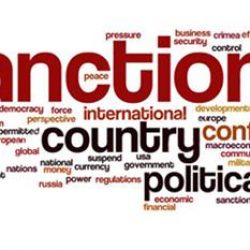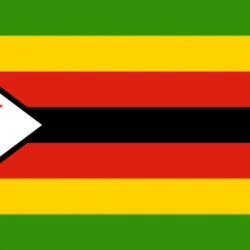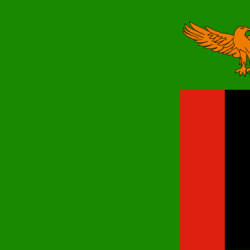(Passed on 24th of February, 1994,Enacted on 5th of September, 1994.)
The Assembly of the Republic decrees, in the terms of articles 164, subparagraph d), 168 paragraph 1, subparagraph b), c), d) and q), and no. 169, paragraph 3 of the Constitution, the following:
Article 1 Actions or Prevention
1 – It is the responsibility of the Public Prosecution Service and the Criminal Investigation Department, through the Central Directorship for the Combat against Corruption, Fraud and Economic and Financial Infractions, to carry out, without prejudice to the competencies of other authorities, actions for the prevention of the following crimes:
a) Corruption, fraudulent conversion of public moneys and economic participation in business;
b) Prejudicial administration in an economic unit of the public sector,
c) Fraud in the obtaining or embezzlement of subsidies, grants or credit;
d) Economic/financial infractions committed in an organized manner and resorting to information technologies;
e) Economic/financial infractions on an international or transnational scale.
2 – The Criminal Investigation Department carries out the actions set out in the preceding paragraph, either at its own initiative or at that of the Public Prosecution Service.
3 – The actions of prevention referred to in paragraph 1 comprise:
a) The gathering of information in relation to news of matters that may give ground for the suspicion of the danger of the commitment of a crime;
b) The request for inquiries, investigations, inspections and other preparatory inquiries that prove necessary and adequate for the investigation of the legal conformity of determined administrative acts or procedures within the framework of the relations between the Public Administration and private bodies;
c) Me proposing of measures designed to lead to a reduction in corruption and in economic and financial crime.
Article 2 Duty of documentation and information
1 – The procedures adopted by the Public Prosecution Service and by the Criminal Investigation Department within the framework of the competencies to which the preceding article refers shall be documented at all times and may not offend the rights, liberties and guarantees of the citizens.
2 -For analysis and monitoring purposes, the Director-General of the Criminal Investigation Department shall inform, on a monthly basis, the Attorney General of the Republic of the proceedings initiated within the scope of the prevention of those crimes referred to in the preceding article.
Article 3 Criminal proceedings
1 – When, in the course of the actions described in article 1, evidence of the commitment of a crime emerges, the respective criminal proceedings shall be initiated immediately.
2 – For the purpose of the preceding paragraph, once the Criminal Investigation Department gathers evidence that confirms the suspicion as to the commitment of a crime, communication of this and of the accusation must be made to the Public Prosecution Service.
Article 4 Request for inquiries
With the due adaptations, and at the initiative of the competent judicial authority, in the course of the proceedings initiated for any of the crimes referred to in article 1, paragraph 1, the provision in article 1, paragraph 3, subparagraph b) is applicable.
Article 5 Breach of the professional secrecy
1 – In the investigation, fact finding and trial phases for the’ crimes listed in paragraph 1 of article 1, members of the governing bodies of credit institutions and financial companies, the employees of, and persons who provide services to, the said institutions and companies are no longer bound by professional secrecy if there is reason to believe that the respective information is of great importance for the discovery of the truth and for the purpose of evidence.
2 – The provision laid out in the preceding paragraph requires at all times the prior authorization of a court by means of a reasoned order.
3 – Me order referred to in the preceding paragraph can take a generic form in relation to each one of the subjects included in the measure.
4 – Those documents considered by the court to be of no interest to the proceedings shall be returned to the entity that supplied them or, provided these are not originals, destroyed, with a respective report being drawn up. All those involved in the operations referred to in the preceding paragraphs are subject to secrecy in relation to the information that has come to their knowledge.
Article 6 Acts of collaboration or Instrumental acts
1 – The practice of acts of collaboration or instrumental acts in relation to the crimes included in article 1, paragraph 1 of this diploma with a view to gathering evidence in the investigation phase, is legitimate.
2 – The acts referred to in the preceding paragraph at all times require the prior authorization of the competent judicial authority.
Article 7 Confidentiality duty
1 – Whoever carries out any activity whatsoever within the scope of competence of the Central Directorship for the Combat against Corruption, Fraud and Economic and Financial Infractions is legally bound by the duty to, absolute confidentiality in relation to the facts that may come to his knowledge in exercising the preventive functions referred to in article 1.
2 – Me duty of confidentiality is extendible to the identification of citizens who deliver any information relevant to the preventive activities of the Central Direction for the Combat against Corruption, Fraud and Economic and Financial infractions or who collaborate with it in any other form whatsoever.
3 – The contents of the preceding paragraph cease to have effect upon the initiation of criminal proceedings.
Article 8 Mitigating circumstances
For the crimes included in article 1, paragraph 1, subparagraphs a) and e), the punishment may be mitigated if the offender provides concrete assistance in the gathering of decisive evidence for the identification or capture of others responsible.
Article 9 Provisional suspension otproceeding3
1 – In the crime of active corruption, the Public Prosecution Service, with the agreement of the examining magistrate, may provisionally suspend the proceedings by means of imposing on the accused injunctions and rules of conduct, if the following accumulative preconditions are fulfilled:
a) Agreement of the accused;
b) The accused has denounced the crime or made a decisive contribution to the discovery of the truth;
c) It is likely that compliance with the injunctions and rules of conduct responds to a sufficient degree to the prevention demands that are applicable in the case.
2 – Simultaneously applicable are article 281, paragraphs 2 and 5 and article 282 of the Code of Criminal Procedure.
Article 10 Alterations to Decree-Law 295-A/90
Articles 4, 18 and 30 of Decree-Law 295-A/90 of 21st of September, shall now read as follows:
Article 4 Competence
1 – The exclusive competence for the investigation of the following crimes is the reserve of the Criminal Investigation
Department for the whole Portuguese national territory:
a) Traffic in narcotic drugs and psychotropic substances;
b) Forgery of coins, credit instruments, excise papers, postage stamps and other such values, or the circulation of these,~
c) Fraud in the obtaining or embezzlement of subsidies, grants or credit;
d) Corruption, fraudulent conversion of public moneys and economic participation in business,
e) Prejudicial administration in an economic unit of the Public Sector,
f) Economic/financial infractions committed in an organized form and resorting to information technologies;
g) Economic/financial infractions on an international or transnational scale,
h) Crimes connected with the crimes referred to in subparagraphs c), d), e), f) and g);
i) Terrorist organisations and terrorism;
j) Crimes against the security of the State, with the exception of those related with mutilation to achieve exemption from national service and emigration to avoid it, as well as those related with the electoral process;
l) Participation in armed mutiny;
m) Hijacking or otherwise disturbance of air, waterway and railway transport services;
n) Crimes against peace and humanity;
o) Slavery, abduction and kidnapping or the taking of hostages;
p) Theft in credit institutions or departments of the Exchequer,
q) Crimes perpetrated with the use of bombs, grenades, explosive materials or devices, illegal firearms and booby-trapped objects;
r) First-degree murder, provided that the murderer is unknown;
s) Larceny of movables that have a scientific, artistic or historic value and are exhibited in public collections or in a place accessible to the public, which may be of important significance for the technological or economic development or which by nature may be highly dangerous substances;
t) Criminal gangs;
u) Fire, explosion, the exposure of persons to radioactive substances and the release of toxic or asphyxiating gases, provided that the matter is at any rate attributable to criminal intent;
v) Traffic in robbed or stolen vehicles and change of their respective means of identifying them;
x) Forgery of driving licences, registration papers and vehicle owner documents, of education certificates and qualifications, of passports and identity cards.
Article 18 Composition of the Directorship-General
The Directorship-General comprises:
a) The director-general;
b) The Superior Police Council;
c) The Central Directorship for the Combat against Banditry;
d) The Central Directorship for Investigation into Traffic in Narcotic Drugs,
e) The Central Directorship for the Combat against Corruption, Fraud and Economic and Financial Infractions;
f) The Central Department for the Registration of Information and Prevention of Crime;
g) The Police Scientific Laboratory;
h) The National Interpol Office;
i) The Telecommunications Department;
j) The Department of Organization and Information Technology;
l) The Department of Public Information and Documentation;
m) The Disciplinary Department;
n) The Equipment, Weapons and Security Departments;
o) The Planning Department;
p) The Technical Assistance Department;
q) The Human Resources Department;
r) The General Assistance Department;
s) The Board of Directors;
t) The Financial Expertise and Accounting Department.
Article 30 Competence of the Directorship-General for the Combat against Corruption, Fraud and Economic and Financial Infractions
The Directorship-General for the Combat against Corruption, Fraud and Economic and Financial Infractions is responsible, within the whole national territory, for the investigation of the following crimes:
a) Corruption, fraudulent conversion of public moneys, and economic participation in business;
b) Prejudicial administration in an economic unit of the Public Sector-,
c) Fraud in the obtaining or embezzlement of subsidies, grants or credit;
d) Economic/financial infractions committed in an organized form and resorting to information technologies;
e) Economic/financial infractions on an international or transnational scale;
f) Crimes connected with those referred to in the preceding subparagraphs.
Article 11
Amendment to Decree-Law 195-A/90
Decree-Law 295-A/90 of 21st of September is amended by article 30-A, which reads as follows:
Article 30-A Competence or the Financial Expertise and Accounting Department
1 – The Financial Expertise and Accounting Department is responsible for the drawing up of opinion reports and the carrying out of expert accounting, financial, economic and banking inspections.
2 – This Department also has the duty to assist the judicial authorities, it being responsible for providing technical assistance that may be requested of it during the investigation, taking of evidence and trial phases.
3 – The Financial Expertise and Accounting Department has technical and scientific autonomy.
Article 12 Requisitioning or transfer of employees
In the case of a mandate of trials by the Public Prosecution Service, the Attorney-General of the Republic, while taking into account the availability of means, may demand, through the Ministry of Justice, the requisitioning or the transfer of criminal investigation employees from the Criminal Investigation Department.
Article 13 Regulation
The structure, composition, recruitment and training of the personnel to fill posts at the Central Directorship for the Combat against Corruption, Fraud and Economic and Financial Infractions and the Financial Expertise and Accounting Department, referred to in article 18 of Decree-Law 295-A/90 of 21st of September, in the wording given to it by this statute, shall be the object of subsequent regulation.
Article 14 Subsidiary Legislation
In all matters that are not specifically regulated by this statute, the provisions of the Code of Criminal Procedure or of Decree-Law no. 295-A/90 of 21st of September shall be applicable.
Article 15 Date or coming into force
This statute comes into force 90 days after its publication.
Passed on 24th of February, 1994. The President of the Assembly of the Republic, António Moreira Barbosa de Melo.
Enacted on 5th of September, 1994. Let it be published. The President of the Republic, MARIO SOARES.
Countersigned on 9th September 1994. The Prime Minister, Aníbal António Cavaco Silva.










 We will not leak your personal information
We will not leak your personal information